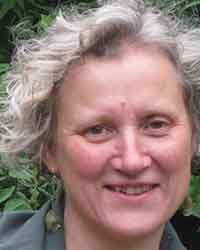 Most GPs will recognise the dispiriting conversation that can happen when a patient discovers that they have Chronic Kidney Disease Stage 3 (CKD). “A disease? Where did I catch it from? Will the grandkids get it? What is the treatment?”
Most GPs will recognise the dispiriting conversation that can happen when a patient discovers that they have Chronic Kidney Disease Stage 3 (CKD). “A disease? Where did I catch it from? Will the grandkids get it? What is the treatment?”
Patients know what a disease is; a condition that you acquire or catch, that makes you feel unwell, gets in the way of normal life. With luck, modern medicine will have some kind of cure. If not, diseases must be endured, maybe modified, maybe even seen as a signal for wills to be made, bucket lists ticked off, last words uttered.
Well, we doctors know that CKD3 it is not that kind of disease, actually. A patient’s eGFR has slipped a few points below an arbitrary threshold, the treatment they are on already is fine, the shift of stage mostly is just due to age catching up a little more. Moreover, the threshold in question can change again when an “expert group” of some kinds moves the goalposts. Those who had normal blood sugars or cholesterols a few years ago are now seen as “abnormal”. Almost all these changes move in the direction of making so called “diagnoses” at ever reducing thresholds.
And then there is “risk.”
“Risk” is a number, itself often derived from an amalgam of other numbers, like “cardiovascular system (CVS) risk.” Like the bonds in the Sub-Prime crisis that caused the 2008 economic crash, these derivatives look set to bankrupt health services all over the place. There is an implicit view that a given CVS risk is like a disease state…something objective, separate from the patient’s own experience (“illness”) and that treatment results in “lives saved” from heart disease or a stroke. Those in favour of mass treatment cite the benefits, those in favour of shared decision making emphasise the importance of individuals…their choices, their experiences of the drug, what they as individuals stand to gain.
The key point is that CVS risk thresholds are not diseases to be “treated” with statins. Those “at risk” are by definition, disease free. Instead of being offered “treatment,” perhaps we should invite patients to enter the “statin lottery.” A few stand to get a big gain from a prevented heart attack or stroke that could shorten life and certainly affect its quality. However, it really is a lottery.
How much reduction in risk could we expect with treatment? The NPC decision aid indicates that at 10% risk as few as 3 out of 100 patients who take statins for 10 years will get this benefit. Even those who do get this benefit will never know whether it was just good luck or whether it was the statin; 7/100 patients who take statins at a 10% risk will still go to get heart attacks and strokes, and will have had 10 years of pills for little benefit.
The gains in the statin lottery come at a cost to others; most patients will have to take the risk of not getting any benefit and possibly of suffering harm; from side effects, as well as considerable inconvenience, costs to the health service and opportunities to spend money on something else foregone.
We could explain this like taxes and the NHS…we all pay up and hope we will be the lucky ones who don’t have to use it. But let us be honest with patients about what we are asking; we would like them all to join in (and suffer any side effects/inconvenience or cost) so that a very few can benefit. We simply do not know whether they themselves will benefit. Looked at like this patients may make a different decision to epidemiologists.
So when is a disease not a disease? When it is just a “risk factor.”
Avril Danczak is a GP in Manchester and a Primary Care Medical Educator training General Practitioners on the Central and South Manchester Specialty Training Programme for General Practice. She is currently working on a patient safety project about diagnosis in General Practice.
Competing interests: I have co authored a book called Mapping Uncertainty in Medicine: what do you do when you don’t know what to do? by Avril Danczak Alison Lea and Geraldine Murphy. RCGP books.
Correction: This piece was amended on 8 August 2017 to make it clear that CVS stands for cardiovascular system.
